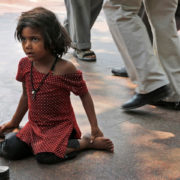In recent years many catholic publications have expressed concern or opinions which were totally contrary to the normalization of ties between the Holy See and China. Criticisms have greatly increased in the past few months as it is clear some kind of framework agreement has been reached and normalization is in sight.
All of this has been shocking news for us Catholics in China as we have been looking forward to an agreement for many decades. The agreement will allow us, for the first time in nearly 70 years, to be fully catholic and Chinese, something we have always wished for. This for us is an immense result, it starts to give us a new life in China and in the universal Church and it allows us to be able to tend to the many wounds of the past.
We are not perfect, we have made many mistakes, we are sinners, but we do hope in the love and mercy of God, to forgive us all for our trespasses and to receive the wise guidance of Rome to help us to move forward, within the bounds of Chinese law, of course.
In this painful process we feel hurt and wounded again by those who voice skepticism and dissent with the apparent decision of the Pope to reach an agreement with the Chinese government. To many of us this sounds like nostalgia for a Cold War mindset, where we would be the sacrificial lambs of a clash between Rome and Beijing, again. As devout Catholics, if the Pope told us so, we of course would accept it, but we would humbly try to dispute that this nostalgia is based on a great deal of misinformation about what is happening in China.
Some in Rome said that they are “neither optimistic nor pessimistic, but skeptical” based on “the facts and events.” The facts and events cited, are that despite the dialogues and negotiations between China and Vatican, in China “churches are destroyed, young people are forbidden to go to church, priests and sisters are tightly monitored.” In view of this, they believe that Pope Francis was misinformed by the “blind optimists” and so it is necessary to offer him “more ideas and facts to base his decision on.” Therefore, they suggest that it is not an appropriate time for the Holy See to sign an agreement with China. Instead, they should “wait for better times” while “accompanying the ‘historic’ commitment to reconciliation between the two communities in China, strengthening formation and education of priests, sisters, and laity,” “learning from the house churches of the Protestants in China for evangelization.” And they end by saying: “My sadness is that in the China-Vatican dialogue the reasons and the life of the underground Church have never been considered or really heard: it is the great discard against which our Pope Francis often inveighs… “
The Pope’s spokesman, Greg Burke, had made it clear that “the Pope is in constant contact with his collaborators, in particular in the Secretariat of State, on Chinese issues, and is informed by them faithfully and in detail on the situation of the Catholic Church in China and on the steps in the dialogue in progress between the Holy See and the People’s Republic of China, which he follows with special attention. It is therefore surprising and regrettable that the contrary is affirmed by people in the Church, thus fostering confusion and controversy.”
Still some people insist that the Pope was misinformed by the “blind optimists” and that contrary to the Pope’s information, other news agencies need to provide the Pope with “reliable” intelligence and offer good suggestions.
Additional sources of information are of course welcome, even by us in China, but looking at things from China, where we live, we believe the Pope is well informed. Furthermore, even in the darkest and most dangerous times we never tried to challenge his opinions or public statements. It is thus shocking to see people in Rome, far closer to the Holy See than we ever will be, defying the Pope’s spokesman and his closest collaborators as if the Pope was a puppet in their hands.
In the eyes of these people, it is as if Mr Burke did not speak on behalf of the Pope, instead, he just once again misled the public and deceived the Pope! That is to say, Pope Francis, though a kind-hearted man, still remains “very naive,” “ignorant of the actual situation,” and “may betray the Catholic Church in China.”
Many of us both of the “official” and the “underground” communities in China do believe that Catholics in China have many problems, but we also think that the lack of normal ties is the biggest problem of all, by far. Therefore, once ties are normalized many things could begin to improve.
But in any case we believe that the crux of the matter now lies not in whether or not some news organization are “against” the Pope, but whether they will trust and obey the Pope.
Moreover, while the Church in China has been experiencing various unfortunate and painful disturbances, obstructions, demolishing of crosses, and detention of bishops and priests, over the past several decades, the different Church communities have never stopped the efforts of reconciliation, formation and education, as well as evangelization according to their best abilities, regardless of the favorable or unfavorable environment. We are grateful for the help of the overseas groups and the various institutions to the Church in China.
However, we believe that the decision whether or not to sign an agreement with the Chinese government or even establish diplomatic relations, is the direction and policy which is to be carefully analyzed and decided by the Pope and his Curia. This is part of the point of electing a Pope and trusting the Holy See.
Protestant churches don’t have the Pope and the Holy See, they certainly do not need to think about it, but we Catholic Church do. In view of this, we the local Churches do our part, and let the Pope and the Holy See carry out their duties. Isn’t this the best interpretation of the phrase “seek to carry out the duty related to the position”?
Those who object to this course in the Catholic Church totally ignored the voices of Bishop Wei Jingyi of Qiqihar and Bishop Jin Lugang of Nanyang, both are “underground” Bishops. They said: “We do not want to be represented by overseas institutions and individuals”, and “[We] obey any decisions made by the Pope and the Holy See without any questions”. They said also they have: “No regrets and complaints for the past sufferings.”
Many of these “institutions” and “individuals” who claim to represent the Church in China over the years, have constantly “doubted” the Pope’s and the Holy See’s policies, not only about China. This perhaps is worse than “being against” the Pope because it provided free ammunition to those truly bent on opposing the Pope, the Holy See, and the entire Catholic Church. They in turn convert the free ammunition into a more destructive material to discredit the Pope and his Curia.
These views are maybe inaccurate and possibly inappropriate because of the distance and our lack of knowledge. We only humbly ask people in Rome to consider them.
Sincerely yours,
Fr. Paul Han Qingping
Fr. Paul Han Qingping is a Catholic priest from Northwest China. He studied Church history and mission theology in the US from 1996-2006. He now works at a Church-run charitable organization while teaching in Hebei Catholic Major Seminary. He is also known as Paulus Gan through his personal blog name.





